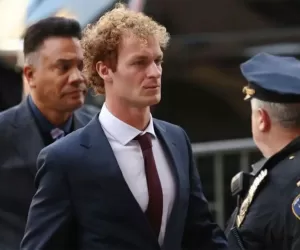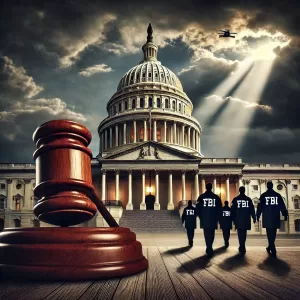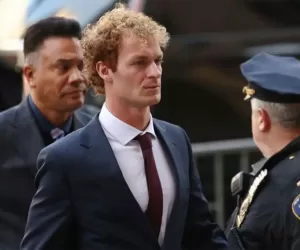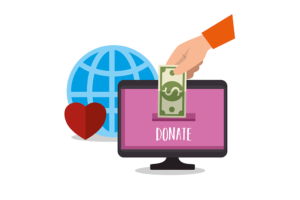
There was a time, not long ago, when standing up to protect others was celebrated. Americans remember those moments when strangers banded together to stop hijackers on planes, like the brave souls on Flight 93 who sacrificed their lives to save countless others on 9/11. We remember when communities acted to protect the vulnerable, to ensure no one was left to fend for themselves against violence or chaos. Back then, courage was not a liability; it was a virtue.
Fast forward to today, and it seems we’ve lost our way. The prosecution of Daniel Penny for his actions on a New York subway reeks of a society that no longer values bravery and has instead fallen victim to the self-serving agendas of crooked politicians and so-called black leaders who wish to manipulate the mindless masses. These opportunists are willing to exploit a tragedy for political gain, regardless of the lives that were protected or the larger implications for public safety.
This case should have never seen the inside of a courtroom. It is a travesty of justice that has consequences far beyond Daniel Penny—it sends a chilling message to every bystander who might otherwise step in to save a life: You’re better off doing nothing.
The Courage of Strangers
Think back to the old days, when ordinary people stood up in extraordinary moments. On planes, in streets, and in subways, there was an unspoken understanding that when chaos erupted, strangers had a duty to act. It didn’t matter who you were or where you came from—if you saw someone in danger, you helped.
That courage wasn’t about being a hero; it was about recognizing the value of human life. African Americans and non-European Americans know this spirit well. It’s the same spirit that carried us through the civil rights movement, when neighbors protected each other from violent mobs and strangers offered sanctuary to those fleeing harm. We saw it most often when white folks joined black folks in civil rights marches. When pastors rose to fight against evil laws to save folks they’d never met from abuse, prostitution and oppression. It’s the same spirit that has fueled community efforts to reduce crime and violence, often in the face of corrupt uncaring government officials and self-aggrandizing self-proclaimed leaders.
Daniel Penny acted in that spirit. In the chaos of the subway, when Jordan Neely’s behavior escalated into what witnesses described as dangerous threats, Penny stepped in. He didn’t stand by, hoping someone else would handle it. He didn’t record it on his phone for likes and shares. He acted to protect others, saving lives in a moment of crisis.
Lives Were at Stake—And Lives Were Saved
The subway car that day wasn’t just a backdrop for a tragic story—it was a confined space full of vulnerable people. Mothers with children, elders heading home, workers exhausted from a long shift—all trapped in a situation that was rapidly escalating into violence.
Jordan Neely’s life mattered. But his behavior that day, stemming from a mental health crisis, posed a real and immediate threat to everyone in that car. Neely’s history of violent outbursts only adds to the context—his actions weren’t an isolated incident. Neely was well known to law enforcement but they did nothing.
Had Penny and others not intervened, what might have happened? We don’t know—but what we do know is that no one else was hurt because Penny acted. For black New Yorkers, who are often disproportionately victims of random violence in public spaces, that fact cannot be ignored.
Penny’s intervention saved lives—black lives included. And yet, instead of being recognized for protecting others, he was force to stand trial, a scapegoat for a broken system that failed both him and Neely.
Political Games at the Expense of Safety
Let’s be honest: this case wasn’t about justice. It was about politics. Crooked politicians and opportunistic prosecutors saw an opening to exploit this tragedy for their own gain. Instead of addressing the real issues—like why a man with severe mental illness was left untreated and allowed to roam dangerously, why they were not protecting the very people who paid their salaries—they chose to target the one person who did what they were elected to do. To protect lives and property.
This is the kind of despicable politicking that has plagued black communities for decades. As I document in my recent book “How To Stop Racism In America.”. Politicians posture about “justice” and “equity” while neglecting the real reasons that caused these tragedies in the first place. They divert attention from their own failures and prioritize their careers and headlines over solutions—and instead focus on punishing individuals like Penny, who are caught in the chaos of a system they didn’t create.
It’s a shell game, plain and simple. They hope we’ll be too distracted by the spectacle of this trial to notice that they’re the ones who failed Jordan Neely long before he ever stepped onto that subway car.
A Dystopian Future Where No One Acts
Daniel Penny is a hero. Black Lives on the Subway do matter to Penny, so much so that he risked his own life and future to save others. He didn’t care if Neely was black or brown or white. He cared that Neely was dangerous. Fortunately, it was clear to the jury and they found him non-guilty. But the real danger of this case isn’t just the injustice done to Daniel Penny—it’s the message it sends to the rest of us. Imagine a world where bystanders are too afraid to intervene, even when lives are at stake. Imagine a subway where a Black mother shields her child from an aggressor, but no one steps in to help. Imagine a street where an innocent Black teen is under attack, but passersby look the other way, fearing they might be the next Daniel Penny.
What kind of dystopian world would that be?
For African Americans, who have long relied on community action and vigilance to stay safe, this isn’t just a hypothetical. In communities where police response times are slow and resources are scarce, the willingness of strangers to step up has often been the difference between life and death. Discouraging that willingness by prosecuting those who act in good faith is not just dangerous—it’s a betrayal of everything that keeps our communities strong.
The Call to Action
This case should serve as a wake-up call—not just for African Americans, but for all of us. We cannot allow political games and performative prosecutions to replace real solutions. We must demand accountability from the systems and politicians who failed Neely, rather than scapegoating those who acted to protect others. Worse we should condemn those who would rally the masses to riot over black lives that were saved. They would sellout their brothers and sisters to gain self-importance for a cause that even a child realizes is nonsense.
Most of all we must reject the dystopian future this prosecution threatens to create. Courage should never be a crime. Protecting others should never be punished. If we lose that, we lose something far greater than this case—we lose the very foundation of what makes us a community.
The old days, when strangers stood up to save lives, were not perfect. But they were built on a simple truth: Your life matters, and I will not stand by and let it be taken. That truth is worth fighting for, now more than ever.











